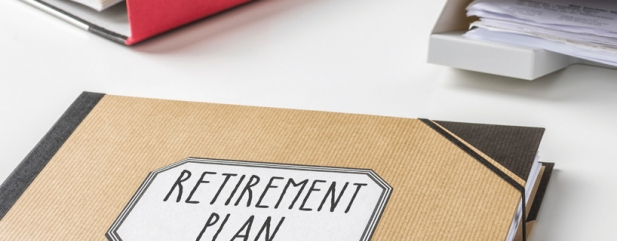Archived article
Please note that tax, investment, pension and ISA rules can change and the information and any views contained in this article may now be inaccurate.
Five ways to boost your retirement income

For many investors the thought of funding a lengthy retirement is a stressful one.
Experts suggest aiming for retirement income of 70% of your current earnings, so someone earning £40,000 would target a pension of £28,000 a year. This translates to a pension pot of around £600,000.
It’s a lot of money, but fortunately there are some simple steps you can take to ensure your retirement income matches your desired lifestyle.
Increase your contributions
The most obvious way to boost your income in retirement is to save more money. If you invest £300 a month for 20 years and achieve an annual investment return of 5%, you’ll amass savings of £123,310. If you increase your monthly contribution to £500 a month, it produces a savings pot of £205,517.
These figures don’t take into account the 20% tax relief you’ll get from the Government if the money is invested into a pension.
Tom Selby, senior analyst at AJ Bell, says investors should aim to save the equivalent of half their age at the point at which they start contributing into a pension. A 26 year-old would target a total contribution of 13%, while a 40 year-old would aim to put away 20% of their salary.
You can also add lump sums to your pension pot, for example if you get a bonus or inheritance.
Retire later
If you work for a few years longer and keep saving into a pension it can dramatically improve your retirement income.
Kate Smith, head of pensions at Aegon, claims someone with an average retirement pot making the average level of contributions could see their pension income increase by two thirds if they defer retirement for five years.
‘This is a result of the triple boost of continued investment growth on the pension fund, further contributions being added and, ultimately, fewer years to spread the fund over once no longer working,’ she explains.
This option isn’t open to everyone as it will depend on your line of work and health.
‘It is far better to save and then choose to keep working that to have it forced upon you in order to maintain your lifestyle,’ says Fiona Tait, technical director at Intelligent Pensions. ‘Having more savings will also provide you with a cushion if you suffer from ill-health in later life which might impact on your ability to extend or obtain employment.’
 Invest appropriately
Invest appropriately
You can increase your pension pot by investing in assets that deliver higher returns, for example shares. According to the Barclays Capital Equity Gilt Study, shares have delivered a real return (after inflation) of 5.6% a year over the last 50 years. Cash has returned just 1.4%.
Higher growth assets tend to be more volatile – the prices can swing a lot over short periods. This means they’re more suited to people with an investment time horizon of at least 10 years.
‘If you are younger, you can usually take a longer term view and accept some volatility,’ says Ben Gold, head of pension investment at Xafinity. ‘If you are closer to retirement you need to very carefully consider the balance between returns and stability.’
People who aren’t used to investing could consider a managed fund, where the investment decisions are made for you in line with specific investment objectives and risk parameters.
Don’t overpay with fees
Paying higher fees – platform fees, pension provider fees and fund fees – will reduce your income in retirement.
A 25 year-old saving £50 a month and earning returns of 4.5% per annum net of fees will accumulate £64,200 by age 65. But if they only achieve returns of 4% per annum, because fees are 0.5% higher, their pot at age 65 will shrink to £57,000.
AJ Bell’s Tom Selby warns that seemingly small differences in charges can balloon over time, potentially reducing your final pot by tens of thousands of pounds.
‘Make sure you shop around to get the best deal on both your platform provider and the funds you invest in. If your priority is keeping costs down, you might want to consider investing in low-cost passive funds which track an underlying index or benchmark,’ he says.
Modern personal pension plans tend to have lower charges so it’s worth checking whether you have any plans that are more than 10 years old. You could transfer the funds to a newer product, although it’s important to check whether there any guarantees or specific policy conditions which would be lost on transfer.
‘Another point is to check that you are only paying for the services which you are using,’ says Intelligent Pensions’ Fiona Tait. ‘If for example you are in a self-invested personal pension (SIPP) and are not using the wider investment range available you are effectively paying for something you don’t need.’
To avoid losing track of your workplace pensions you could consolidate them with one provider. This will give you a clearer idea of how much your pension is worth, but again you’ll need to watch out for charges.
Manage your income tax
Managing your current and future income tax liability can save you thousands of pounds. Adrian Mee, wealth management consultant at Mattioli Woods, says if you can make pension contributions as a higher rate tax payer you’ll benefit from tax relief of 40%.
When you retire, if you control your withdrawals from your pension fund you could be classed as a basic rate taxpayer, which means you’ll pay tax on withdrawals of 20% instead of 40%.
This effectively boosts your net income in retirement by 20%.
Important information:
These articles are provided by Shares magazine which is published by AJ Bell Media, a part of AJ Bell. Shares is not written by AJ Bell.
Shares is provided for your general information and use and is not a personal recommendation to invest. It is not intended to be relied upon by you in making or not making any investment decisions. The investments referred to in these articles will not be suitable for all investors. If in doubt please seek appropriate independent financial advice.
Investors acting on the information in these articles do so at their own risk and AJ Bell Media and its staff do not accept liability for losses suffered by investors as a result of their investment decisions.
Issue contents
Big News
- Brexit puts squeeze on consumers and businesses
- Pressure on Blancco Technology
- Keep toasting cash-generative Conviviality
- Yu Group to beat forecasts
- Weir seeing North American shale recovery
- Carillion bailed out by HS2
- What will McCall do at ITV?
- Sage to sidestep HMRC’s digital delay
- EasyJet reveals post-Brexit plans as CEO departs

 magazine
magazine












